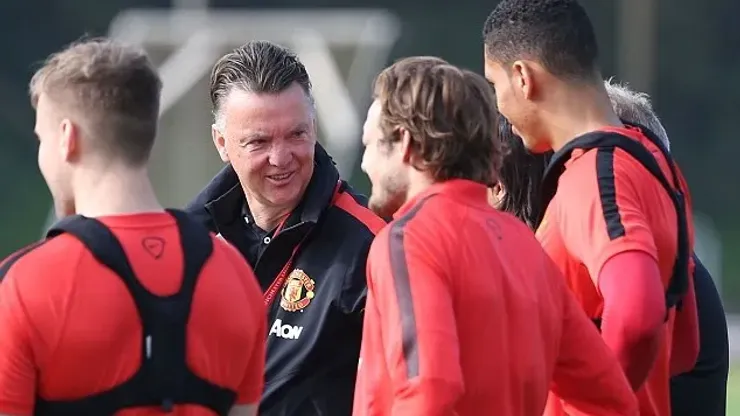Much has been made this season about Louis van Gaal’s managerial style and coaching strategy at Manchester United.
Now, a new book published in Holland by Dutch author Mike van Damme details the story of Ajax’s 1995 Champions League winning side and provides more insight into Van Gaal’s techniques.
The ‘1995’ book chronicles the season that saw Ajax win the Eredivisie title for the second time before culminating the campaign with a UEFA Champions League triumph over AC Milan in Vienna.
The seeds for that season were sown four years earlier when Van Gaal was named the successor to legendary Dutch coach Leo Beenhakker.
The techniques implemented by Van Gaal at that time are currently being mirrored at Manchester United, as the Dutch coach attempts to return the English club to prominence both domestically and in Europe.
“The squad I took over was that of Beenhakker, therefore embedded with the choices of Beenhakker,” Van Gaal is quoted as saying regarding his transition from assistant to head coach at Ajax.
“Frankly a club should have a philosophy and find a suitable manager for it, but you see often a manager implementing his philosophy in a club.
“It was the same with Beenhakker, and I started doing that too. I started changing the team, because I wanted my football to be played. To make that happen I needed different players for some positions. I had to bring in fresh blood.
“You can’t make that happen in a couple of months. It takes years.”
SEE ALSO — Listen to an interview with Thomas Rongen about Louis Van Gaal.
Former Ajax defender Danny Blind, father of current United player Daley Blind, was a key figure in Van Gaal’s squad at the time and provided more insight into the manager’s ideas, organizational techniques and team building efforts.
“From day one, there was discipline,” Blind recalls.
“We, as a team, had to get used to that massively. Van Gaal was a bit like a school teacher who had to correct us all the time.
“It was impressive, he never stopped doing that. We were, for example, only allowed to eat when everybody was present at the table.
“It wasn’t the meal itself he was interested in, but he believed in communication. Sharing a meal means talking to each other.
“You weren’t allowed to leave the table when one of your team members was still eating.
“That’s how he forged a team. It really wasn’t such a mess with other managers, but it wasn’t organized as tightly as under Van Gaal.
“We all had to be really fit. We pressured high on the pitch. He made everyone feel confident in order to make everybody feel comfortable.”
200+ Channels With Sports & News
- Starting price: $33/mo. for fubo Latino Package
- Watch Premier League, Women’s World Cup, Euro 2024 & Gold Cup
The New Home of MLS
- Price: $14.99/mo. for MLS Season Pass
- Watch every MLS game including playoffs & Leagues Cup
Many Sports & ESPN Originals
- Price: $10.99/mo. (or get ESPN+, Hulu & Disney+ for $14.99/mo.)
- Features Bundesliga, LaLiga, Championship, & FA Cup
2,000+ soccer games per year
- Price: $5.99/mo
- Features Champions League, Serie A, Europa League & Brasileirāo
175 Premier League Games & PL TV
- Starting price: $5.99/mo. for Peacock Premium
- Watch 175 exclusive EPL games per season







